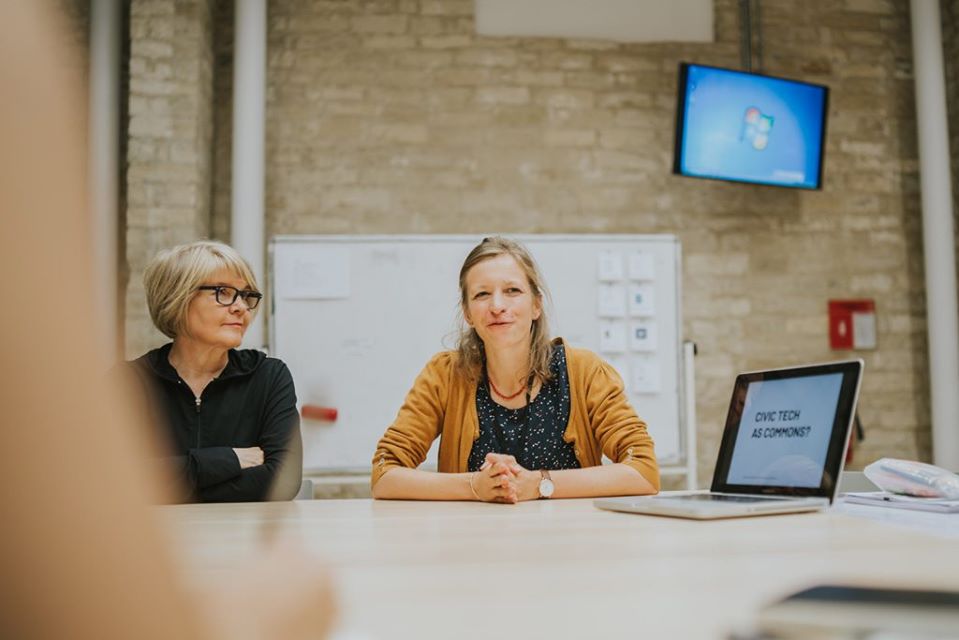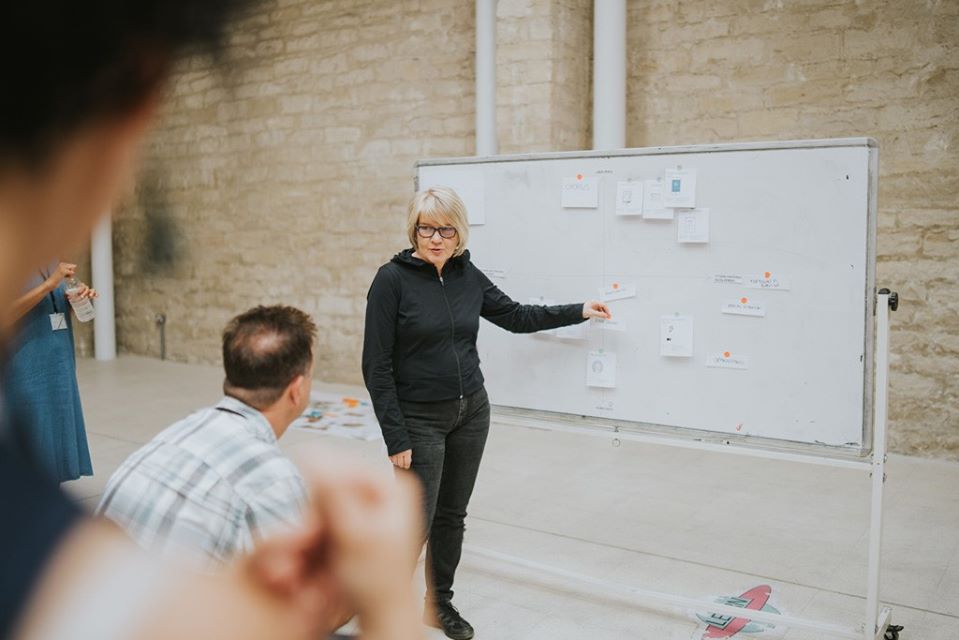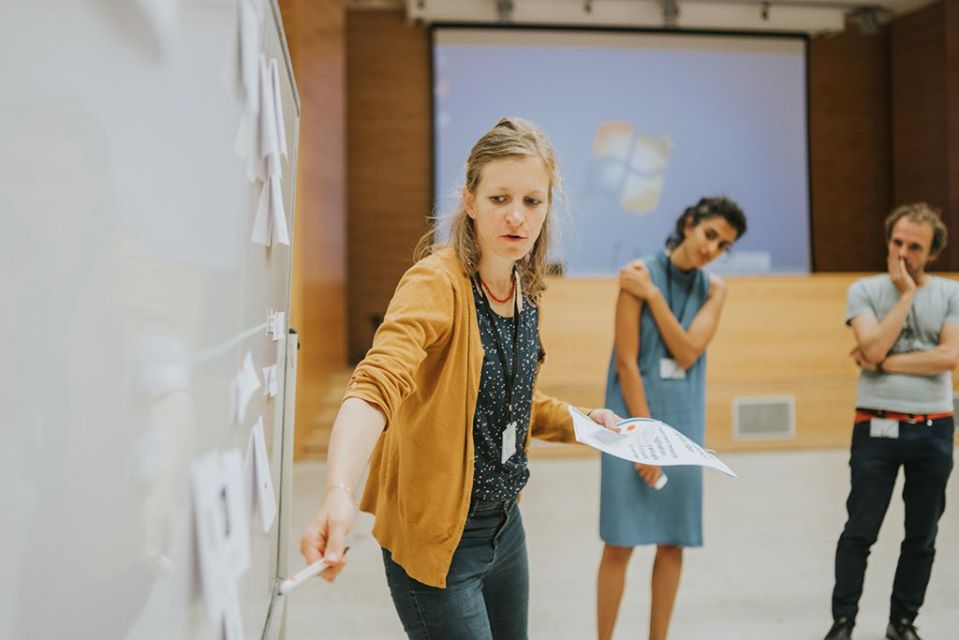In this three-hour workshop, projects and approaches about already existing civic tech projects were set out in a short presentation. A diagram was proposed with four poles labelled “local”, “global scale”, “technology-centered development” and “citizen-centered development”. The distinction between local and global shows if the open-source repository spread and was used outside the local setting, as can be seen for the Grow Room project. The other distinction, between technology- or citizen-centered technology development, should show the initial impulse behind how the technology was initiated: if the first trigger was the technological feasibility, or, if the main intention behind it was a humancentered, needs-based development process. A range of open-source technologies was positioned on the diagram, and new projects the participants had in mind were added. The participants gave feedback saying that the dimension of ethics was missing, and when the category of citizen-centered technology development was discussed, the additional categories of “developer”, “user”, “funder or initiator” as well as “organizational structures”, as foundations or municipalities, were also missing. An additional triangle between “Financier/ Enabler/ Supporter” or “Developer/Idea Keeper/User” was the outcome of the discussion.
Outcomes:
1) Meaningful evaluation, which does not reduce the complexity of open-source technology development, is needed . Each open-source repository is highly complex. Therefore, a concise terminology is needed to identify and differentiate between these technologies, especially when focusing on their social implications. Once these categories have been established, a more in-depth comparison would make sense.
2) An evaluation is needed of how to equip citizens with meaningful and accessible technology. This evaluation should be put in place to learn how open-source technology can be offered in a more meaningful and accessible way to citizens who have basic digital knowledge but are eager to learn and build up competences, not only for themselves but also to change their local situation into a “preferred” one (cf. Simon [1969] 1996).


